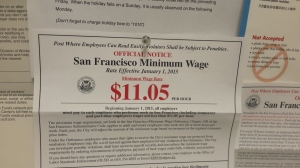 One of the more painful things that happen to employees of start-ups in San Francisco and the rest of Silicon Valley is being laid off shortly before or right before they become eligible for a stock or right before an important vesting deadline. Sometimes, employers terminate an employee specifically for that reason – to avoid giving them these stock rights. As unfair as this type of action may sound, usually it’s perfectly legal. Most stock agreements are written in a way that does not create a binding contract. These agreement allow employers to do this lawfully, and there is not much that the terminated employee can do to not lose the stock he was looking forward to receiving.
One of the more painful things that happen to employees of start-ups in San Francisco and the rest of Silicon Valley is being laid off shortly before or right before they become eligible for a stock or right before an important vesting deadline. Sometimes, employers terminate an employee specifically for that reason – to avoid giving them these stock rights. As unfair as this type of action may sound, usually it’s perfectly legal. Most stock agreements are written in a way that does not create a binding contract. These agreement allow employers to do this lawfully, and there is not much that the terminated employee can do to not lose the stock he was looking forward to receiving.
However, this loss of stock can often be used in negotiating a severance or a better severance packager, especially if an employee is terminated days before his stocks vest, which is not uncommon. Different strategies are appropriate for negotiating a severance depending on the length of your tenure with the company, your most recent position, duties and compensation, any potential legal claims you might have against the employer, and other specific circumstances of your employment and termination.
An experienced employment attorney can guide you through how to go about negotiating a higher severance and getting the best deal you can, as you transition to your next job or the next stage in your career. Negotiating a higher severance is always a good idea for a simple reason – you have nothing to lose, and if a 10 minute conversation can result in putting a few more thousand dollars in your pocket, then why not try.
 San Francisco Employment Law Firm Blog
San Francisco Employment Law Firm Blog





 The Harris court, applying this analysis, found that insurance adjusters, who sued the defendant for unpaid overtime, were primarily engaged in “production” – adjusting individual claims for their employer. They investigate claims, make coverage determination, set reserves, negotiate settlements, make settlement recommendations for claims beyond their settlement authority, identify potential fraud, and so forth. Noe of that work was found to be carried out at the level of management policy or general operations. Rather, it is all part of the day-to-day operation of defendants’ business.
The Harris court, applying this analysis, found that insurance adjusters, who sued the defendant for unpaid overtime, were primarily engaged in “production” – adjusting individual claims for their employer. They investigate claims, make coverage determination, set reserves, negotiate settlements, make settlement recommendations for claims beyond their settlement authority, identify potential fraud, and so forth. Noe of that work was found to be carried out at the level of management policy or general operations. Rather, it is all part of the day-to-day operation of defendants’ business. 